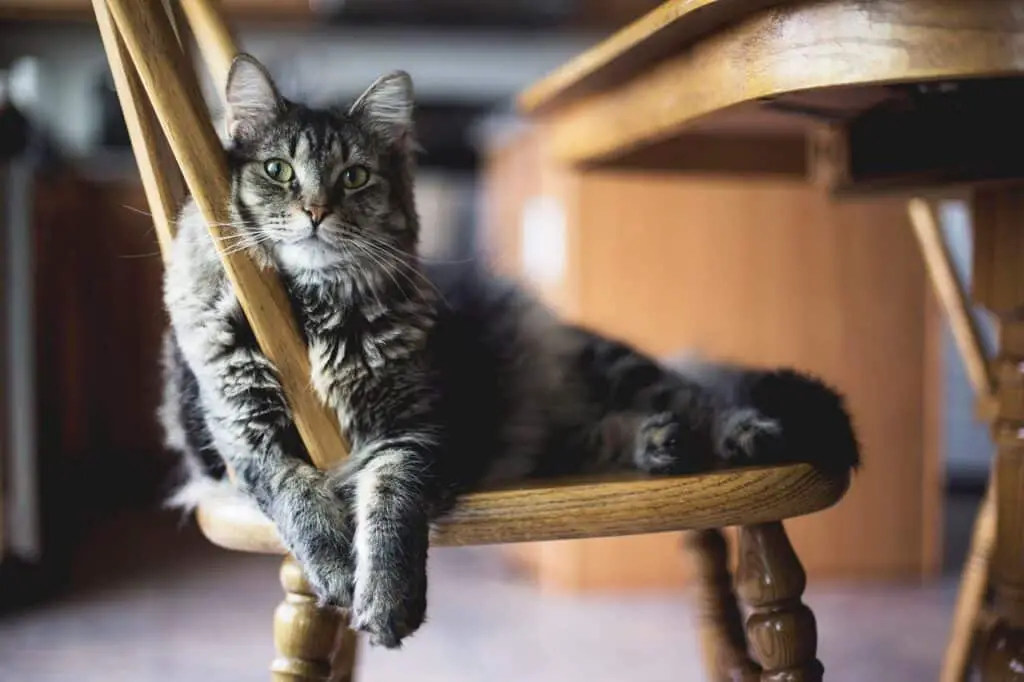Would a cat eat its owner?
First things first: don’t worry about Mr. Whiskers nibbling on you while you’re still breathing. Cats won’t normally chow on their living owners, according to Mikel Delgado, a postdoctoral fellow at the UC Davis School of Veterinary Medicine and a cat specialist at Feline Minds. People shouldn’t be concerned that their cat will devour them while they are still alive, according to Delgado. But when we turn to dead people, things become a little riskier—and grimmer. Imagine that a person passes away and his cat is left without food for days or even weeks. How the situation might naturally develop can be predicted.
If the owner was dead and the cat was left without food [and with their owner’s body] for a long time, there is a chance that the cat might eat some of the body, according to Delgado. A tiny number of studies have been conducted on cats eating people. Researchers discovered that some cats ate their deceased owners’ head, neck, and arm in one study from 1994 that was published in the American Journal of Forensic Medicine & Pathology. This finding is similar to Delgado’s hypothesis.
The Journal of Forensic Sciences published a paper in 2020 that makes a horrifying discovery about feral cats. These are domestic cats that live in freedom and are bred in the wild. In the study, experts left human bodies outside a research facility in Colorado, where they then watched cats scavenge the abandoned remains. Both bobcats and wild cats prefer fresh flesh in the early phases of decomposition, according to the forensic experts. Feral cats prefer to gnaw on the face, while bobcats typically feast on the arms, hips, and thighs.
What type of cat is most likely to eat its owner?
House cats are domestic animals that don’t normally spend much time, if any time at all, in the wild, so it’s difficult to know how to apply these findings on feral cats to them. Delgado claims that because domestic cats and wild cats belong to the same species, we may apply similar findings to them. Although wild cats are frequently accustomed to hunting and gathering their own food, he claims that their dietary requirements are essentially the same. Delgado asserts that there is no reason to believe that a starving cat would refuse to consume any available meat, including human flesh.
In the end, Melissa Connor, director of the Forensic Investigation Station at Colorado Mesa University and a co-author of the 2020 study on feral cats, concurs with Delgado. According to Connor, “domestic and feral cats certainly seem to have different foraging behaviors.” These distinct eating patterns, though, are not the result of domestic cats developing relationships with people. The cat’s habits are instead related to its “body’s state at the time of scavenging” or its “experience in consumption of whole animal carcasses.”
So it stands to reason that a domestic cat that spends a lot of time outdoors hunting might behave similarly to feral cats in its consumption of animal and human corpses. But in the end, Connor said, both domestic and wild animals would consume people given the correct conditions. Dogs are included in this. Domestic cats and dogs will both scavenge dead people, especially if they are confined to a home or apartment and have no other access to food or water. However, Spano isn’t entirely certain. She contends that socialization habits and genetic makeup distinguish domestic cats from feral cats.
House cats naturally exhibit predatory characteristics that are “programmed within their genome,” just like any other animal. According to Spano, these actions include stalking, hunting, chasing, biting, and even murdering. Environments, however, can affect how these behaviors are responded to. According to Spano, “the environment of a cozy home, where your typical house cat has been domesticated for many generations, is different from the environment of the wild.”
She contends that it is improbable that house cats will hunt and consume humans given the strong social relationships that have developed between them over the course of many years of development. The hunt is the main focus. According to Spano, “the average house cat’s predation on its human cohabitants is not truly necessary for its existence and therefore quite infrequent.”
The opinions of all three of our experts are in agreement: Your cat can’t eat your arm as long as you’re still breathing. But after your death, it might be a completely different game. It’s difficult to predict with certainty whether or not a cat will consume a dead body because it depends on the situation. In other words, treat your cat well while it’s alive, and pray that it will treat you well when it passes away.
Is it normal to wonder if my cat would eat me?
According to Spano, “the bulk of domesticated cats won’t realistically prey on their adult human parents.” Your present domestic cat has been around for thousands of years, diverging from its carnivorous forebears. Is it common to worry that my cat will consume me? It’s important to analyze the psychology of this query. What does it reveal about the shaky bonds that people have with their animals?
There is undoubtedly an ethological and biological justification for a human to wonder why another animal would want to devour him or her, according to Spano. She does acknowledge that the fear is reasonable. Rarely, domestic animals may turn hostile against their human roommates. According to Spano, cats in particular may engage in “predatory behavior” toward small, timid animals like small dogs, rats, birds, deer, and “sadly, human newborns and toddlers.”
However, Spano asserts that a cat would consume wild animals much more frequently than its human counterparts. These circumstances “definitely may arise,” she asserts. However, “[these circumstances] are very, very rare for your normal domestic house cat and would instead be more focused towards wild, predatory species.”














